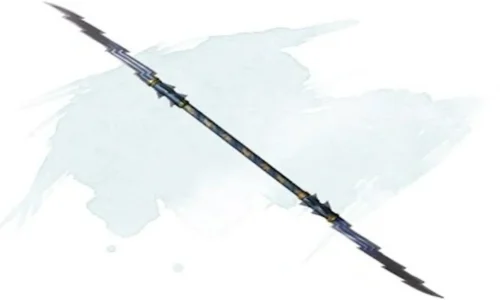A hex spell is a level 1 spell that allows a caster to impose a curse on a target in Dungeons & Dragons 5e. When a character casts the spell, they select one ability score possessed by the target and impose a disadvantage on ability checks made with that score.
Moreover, the caster chooses a damage type, such as necrotic or fire, and the target takes an additional 1d6 damage of the chosen type every time they are damaged by the caster or their ally. The spell lasts for up to 1 hour, or until the target drops to 0 hit points.
The caster can transfer the curse to a new target if the original target dies or becomes incapacitated, potentially allowing them to curse multiple targets with a single casting of the spell.
How the Hex Works?
When a caster casts the Hex spell, they choose a single creature within range that they can see. The curse will affect the target if they fail a Wisdom saving throw.
Then, the caster selects one ability score possessed by the target, which imposes a disadvantage on ability checks made using that score.
The caster also chooses one damage type, and whenever the target is damaged by the caster or an ally, they take an additional 1d6 damage of that type. The spell lasts for up to 1 hour or until the target drops to 0 hit points.
Spell’s Components and Effects
The Hex spell has two main components:
The Curse: The curse component of the spell causes the target to have a disadvantage on ability checks made with one chosen ability score, making it harder for them to succeed in tasks that require that ability score.
Damage Component: When the caster or their ally damages the target, the additional damage component of the spell inflicts an extra 1d6 damage of a chosen type.
Benefits and Limitations of Hex in Combat
Sure, here are the benefits and limitations of the Hex spell in combat
Benefits
-
The Hex spell can impose a disadvantage on ability checks, which makes it more difficult for the target to hit the caster or their allies, avoid being hit by the caster or their allies, or perform other actions.
- Deals an additional 1d6 damage of a chosen type when the target is damaged by the caster or an ally.
Limitations
- The curse only affects one ability score, which may not be very effective if the target doesn’t rely heavily on that score.
- It doesn’t affect saving throws or attacks, so the target can still make attacks or saves without a disadvantage.
- Additional damage is limited to 1d6 and can only be dealt with when the target is damaged by the caster or an ally, so it may not be very effective against targets with high hit points or damage resistance.
When to Use Hex 5e
Knowing when to use Hex in Dungeons & Dragons is important to ensure that it is used effectively and efficiently. Here are some general guidelines on when to use Hex:
Combat Scenarios
Hex has a primary focus on combat, and it proves to be most effective in such scenarios.
The spell enables the caster to impose a disadvantage on ability checks, which in turn makes it harder for the target to perform actions such as hitting the caster or their allies, avoiding attacks from the caster or their allies, or executing other actions.
It also deals an additional 1d6 damage of a chosen type when the target is damaged by the caster or an ally.
Before or During Combat
To maximize the duration of the curse, it is best to cast Hex before or during combat. This ensures that the curse is active for the entire combat encounter, providing the caster and their allies with the benefits of the spell.
Tough Opponents
Hex can help weaken tough opponents, making them easier to defeat in combat. If the party is facing a particularly tough opponent, using Hex can help turn the tide of the battle in their favor.
Spell Duration
Hex requires concentration, which means the caster cannot cast other concentration spells while it is active. Additionally, the spell’s duration is only one hour, so it may not be useful in longer encounters or exploration scenarios.
It’s important to consider the duration of the spell and whether it will last long enough to be useful in a given situation.
Which Classes Can Use Hex 5e Spell?
- Warlock: Warlocks are the primary class associated with the Hex spell, as it is part of their spell list. They can use the spell starting at 1st level and can cast it at higher levels to increase the damage dealt.
- Ranger: Rangers can also use the Hex spell, and it is part of their spell list. They can use the spell starting at 1st level, and it synergizes well with their focus on dealing damage with weapons.
- Eldritch Knight: Eldritch Knights, a subclass of the Fighter class, can also learn and use the Hex spell. They gain access to 3rd-level spells at level 13, at which point they can choose to learn Hex.
- Arcane Trickster: The Arcane Trickster, a subclass of the Rogue class, can also learn and use the Hex spell. They gain access to 3rd-level spells at level 13, at which point they can choose to learn Hex.
- College of Valor Bard: Bards in the College of Valor subclass can also learn and use the Hex spell. They gain access to 3rd-level spells at level 9, at which point they can choose to learn Hex.
Warlocks and Rangers commonly associate themselves with the Hex spell due to its damage boost and ability to impose a disadvantage on ability checks, both of which highly benefit these classes.
However, other classes can also use the spell effectively, particularly those that focus on dealing damage or have a connection to magic.
Strategies for Using Hex 5e
Here are some strategies for using Hex in different scenarios in Dungeons & Dragons:
Spellcasters
When facing spellcasters, Hex can be particularly effective. Using Hex to impose a disadvantage on their ability checks can make it harder for them to cast spells, especially if they are attempting to cast spells with verbal or somatic components.
Additionally, using the Hex spell’s damage boost against spellcasters can help quickly take them out of the battle.
Tanks
When facing tank-like enemies with high armor class and hit points, using Hex can help to quickly whittle them down. The additional 1d6 damage dealt by the Hex spell can make a big difference in wearing down the enemy’s health.
Groups of Enemies
When facing groups of enemies, using Hex on a single target can be effective, as the spell’s damage boost applies to all damage dealt by the caster and their allies.
Choosing a target that the party is likely to focus its attacks on can help quickly eliminate that target, reducing the number of enemies the party needs to fight.
Combining Hex with Other Spells and Abilities
You can combine Hex with other spells and abilities to maximize its effect in Dungeons & Dragons 5e. For example, a Warlock can use their Eldritch Blast cantrip while Hex is active to deal even more damage, while a Ranger can use their Hunter’s Mark spell to deal additional damage as well.
Additionally, combining Hex with spells that target the same ability score as the disadvantage imposed by Hex can make it even harder for the enemy to succeed on ability checks.
Balancing Using Hex with Other Actions
While Hex can be a powerful spell, it requires concentration to maintain, meaning the caster cannot cast other concentration spells while it is active.
It’s important to balance using Hex with other actions in combat or exploration, such as using other spells or abilities, moving to avoid attacks, or assisting allies.
Additionally, it’s important to consider the duration of the spell and whether it will last long enough to be useful in a given situation.
Roleplaying with Hex 5e
When using the Hex spell in Dungeons & Dragons 5e, there are opportunities for roleplaying that can add depth to the character and enhance the overall game experience. Here are some ways to incorporate roleplaying into the use of Hex:
Describing the Magical Effects
When casting Hex, the character can describe the magical effect in a way that reflects their personality or the nature of their magical abilities.
For example, a Warlock might describe their Hex as a dark, shadowy aura that surrounds the target, while a Druid might describe their Hex as a swarm of insects that crawl over the target.
Show the Effects of the Hex 5e
The spell’s disadvantage and additional damage affect the target while Hex is active. As a player, you can describe how the Hex is affecting the target, such as causing them to stumble or struggle to focus on their actions.
Roleplay the Concentration Required
Maintaining concentration is necessary to keep Hex active, so roleplaying the concentration required can add tension to combat encounters.
The character can maintain the spell by focusing their thoughts or struggling to concentrate while taking damage or being distracted by other enemies.
Roleplay the Moral Implications
Using Hex may have moral implications depending on the character’s alignment and motivations.
Roleplaying how the character feels about using Hex on enemies, or how they justify its use in certain situations, can add depth to their character and create interesting roleplaying opportunities.
Variant Rules and Homebrew Options
There are several variant rules and homebrew options that can be used to modify or enhance the Hex spell in Dungeons & Dragons. Here are some examples:
Hex Enhancement:
This homebrew option allows characters to enhance the Hex spell with additional effects. For example, the Warlock’s Curse can be added to Hex, or the spell can be modified to cause the target to take additional damage from specific types of attacks (e.g. fire or lightning).
Hex Resistance
This variant rule allows some creatures or enemies to have resistance to Hex, making the spell less effective against them. This can add an additional layer of challenge and strategy to combat encounters, as the players may need to find other ways to deal with resistant enemies.
Concentration Challenge
This homebrew option introduces a challenge to maintaining concentration on the Hex spell. Instead of simply taking damage to break concentration, the player must make a Wisdom saving throw each turn to maintain the spell.
The DC can increase each turn, making it more difficult to maintain the spell over time.
Enhanced Duration
This variant rule extends the duration of the Hex spell from 1 hour to 8 hours. This allows players to use the spell for longer periods of time, such as during exploration scenarios or when traveling through dangerous areas.
Hex Mastery
This homebrew option allows players to become more proficient with the Hex spell over time. As they gain levels or experience, they can unlock additional benefits or enhancements to the spell, such as increasing the range or duration or allowing the Hex to affect multiple targets.
Overall, these variant rules and homebrew options can add depth and customization to the Hex spell in Dungeons & Dragons, allowing players and DMs to tailor the spell to their preferences and playstyle.
It’s important to discuss any homebrew options with the DM before implementing them, to ensure they are balanced and appropriate for the game
Summary
Hex is a 1st level spell in Dungeons & Dragons 5th edition that allows a player to choose a creature and impose a disadvantage on one ability check of their choice. The spell also deals extra necrotic damage each time the target is hit by an attack.
The Hex spell is useful in both combat and exploration scenarios, providing players with a tactical advantage against enemies or obstacles. Several classes, including Warlocks, Sorcerers, and Wizards, have the ability to use Hex in Dungeons & Dragons 5th edition.
There are various strategies for using Hex, such as targeting certain types of enemies or combining it with other spells and abilities for maximum effect. Homebrew options and variant rules can enhance the Hex spell.
FAQs
Do you have to move hex immediately?
n Dungeons & Dragons 5th edition, you are not required to move the Hex spell immediately after casting it. The spell allows you to move it as a bonus action on subsequent turns during its duration.
However, if the target moves out of range of the spell or the spell’s duration ends before you move it, the spell will end and you will need to recast it if you want to use it again.
How long does hex 5e last?
The Hex spell in Dungeons & Dragons 5th edition has a duration of up to 1 hour. The spell ends early if the target drops to 0 hit points, or if the caster loses concentration on the spell.
Does hex trigger multiple times?
Yes, the Hex spell in Dungeons & Dragons 5th edition triggers multiple times. The spell allows the caster to choose a creature and impose a disadvantage on one ability check of their choice.
The spell deals extra necrotic damage to the target every time it gets hit by an attack. If the target is hit multiple times during the duration of the spell, Hex will trigger multiple times, causing extra necrotic damage with each hit.








